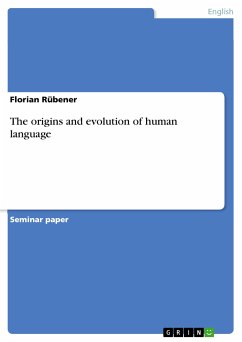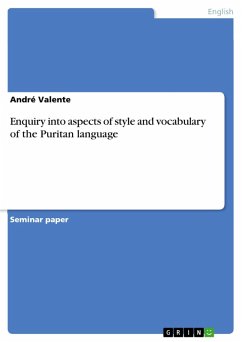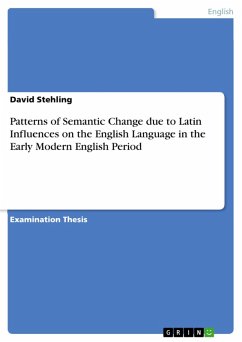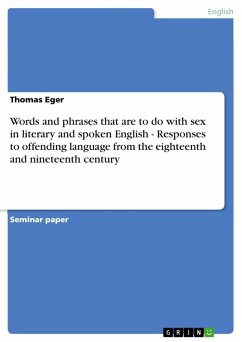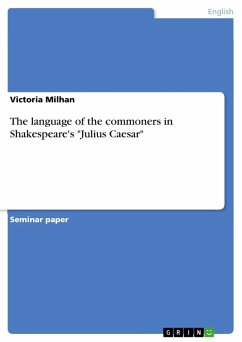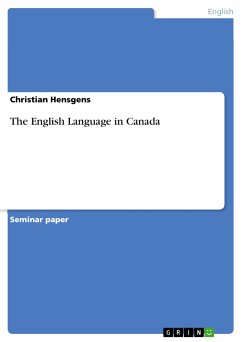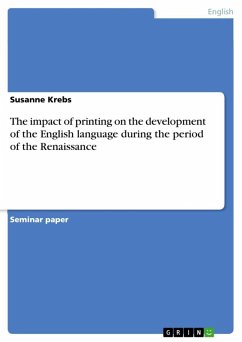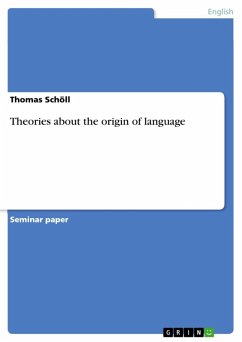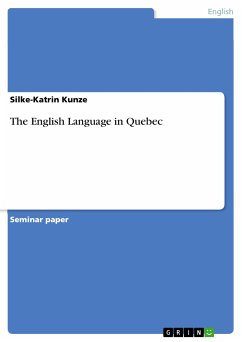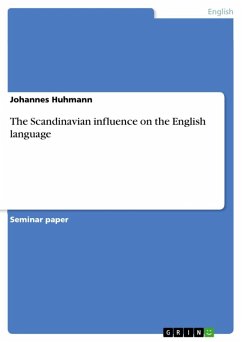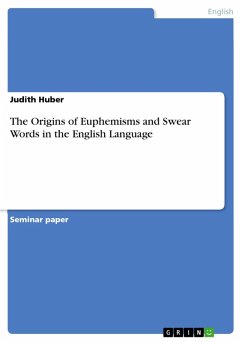
The Origins of Euphemisms and Swear Words in the English Language (eBook, ePUB)

PAYBACK Punkte
0 °P sammeln!
Seminar paper from the year 2004 in the subject English Language and Literature Studies - Linguistics, grade: 2 (B), University of Hamburg (Institute for Anglistics/ American Studies), course: Proseminar: Lexicology, language: English, abstract: Modern English is known to be a language made up of mainly two different roots: the Germanic language that was spoken by many inhabitants of the British Isles before the Norman Conquest in 1066, and the Romanic language that the Norman invaders brought with them. These two origins, however, are not distributed equally on the English vocabulary: very ge...
Seminar paper from the year 2004 in the subject English Language and Literature Studies - Linguistics, grade: 2 (B), University of Hamburg (Institute for Anglistics/ American Studies), course: Proseminar: Lexicology, language: English, abstract: Modern English is known to be a language made up of mainly two different roots: the Germanic language that was spoken by many inhabitants of the British Isles before the Norman Conquest in 1066, and the Romanic language that the Norman invaders brought with them. These two origins, however, are not distributed equally on the English vocabulary: very generally speaking, Germanic words more often denote basic concepts, while Romanic words more often denote abstract concepts. This is illustrated by the fact that the General Service List (GSL), listing the 2000 most frequent (and therefore most basic) English words, is made up by 50.98 percent of words of Germanic origin, whereas in the Computer Dictionary (CD)1, which consists of 80 096 words, only 26.28 percent of the entries have Germanic roots, but a majority of 58.52 percent have Latin or Romanic ones (Scheler 1978: 72). Therefore it seems quite obvious that swear-words in particular should, to a higher percentage, have Germanic roots, because the concepts they denote are mostly 'basic', the domain in which Germanic words are represented to a greater extent than Latin or Romanic words. Moreover, bearing in mind that words of Latin or Romanic origin are more likely to denote abstract concepts and that they often seem to have a certain taste of 'culture' and 'good education', one could suppose that there is a higher percentage of Latin or Romanic words among euphemisms. These considerations led to the following hypothesis:
Dieser Download kann aus rechtlichen Gründen nur mit Rechnungsadresse in A, B, BG, CY, CZ, D, DK, EW, E, FIN, F, GR, HR, H, IRL, I, LT, L, LR, M, NL, PL, P, R, S, SLO, SK ausgeliefert werden.




